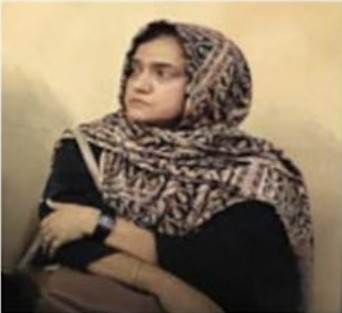PILGRIMS OF HOPE
Restoring Faith and Universal Fraternity
 The following is the presentation by Shabina Ali (Kolkata Chapter CPS) in an Interfaith programme. This article was later published in The Herald Weekly, Kolkata.
The following is the presentation by Shabina Ali (Kolkata Chapter CPS) in an Interfaith programme. This article was later published in The Herald Weekly, Kolkata.
IN a world fraught with challenges, the concept of being “pilgrims of hope” resonates deeply, offering a pathway to restore faith, trust, and a sense of universal fraternity. As we journey through life, pressing forward towards a better future, our commitment at every step is to foster hope not only for ourselves but for all of humanity. This journey is profoundly rooted in Islamic teachings, where hope, trust, and the care for creation are essential elements of a believer’s life. The Quran, Hadith, and the insights of Islamic scholars like Maulana Wahiduddin Khan provide valuable guidance on how to live as true pilgrims of hope. The Quran emphasizes the importance of hope in God’s mercy and the promise of a better future. God says, Do not despair of God’s mercy, for God surely forgives all sins. He is truly the Most Forgiving, the Most Merciful. (39: 53)
This verse underscores the idea that hope is a vital component of faith. It encourages believers to trust in God’s infinite mercy and to maintain hope even in the darkest of times. This trust is essential for restoring a sense of universal fraternity, as it fosters a spirit of forgiveness, understanding, and compassion among people.
The Hadith further illustrates the role of hope in the life of a believer. Prophet Muhammad said, “If the Hour (the Day of Judgement) is about to be established, and one of you is holding a palm shoot, let him take advantage of even one second before the Hour is established to plant it”. (Musnad Ahmad) This Hadith highlights the importance of proactive hope continuing to do good and contribute positively to the world, regardless of the circumstances. It teaches that hope is not merely a passive expectation but an active engagement with life’s opportunities, which in turn fosters a sense of responsibility towards others and the environment. The Prophet also said that hoping for a better tomorrow is a form of worship, as mentioned in Jami’ at- Tirmidhi.
Maulana Wahiduddin Khan, a prominent Islamic spiritual scholar and founder of CPS International, dedicated his life to demonstrating the relevance of Islam in the modern age. In his writings, he emphasized that the modern era is one of peace and opportunities, where Islam can be understood as a complete ideology of peace. He argued that Islam, through its creation plan of God, offers a blueprint for living a life of hope and purpose. According to him, being a pilgrim of hope means recognizing the potential for peace and harmony in the world and working tirelessly to achieve it. His vision aligns with the Quranic perspective of hope as a force that drives positive action. He believed that the modern age provides unparalleled opportunities for everyone to engage with the world, spread the message of peace, and care for the common home: our planet. By embracing hope, we can play a crucial role in addressing global challenges, promoting universal fraternity, and protecting the environment as part of our spiritual duty. The concept of being pilgrims of hope is not just a spiritual journey but a practical one, rooted in Islamic teachings. It calls upon believers to restore hope and trust, to recover a sense of universal fraternity, and to care for the common home by contemplating the beauty of creation.
As we move forward in our journey, committed to bringing about a better future, we fulfil the ultimate goal of every vocation: to become ambassadors of hope, contributing to a world where peace, compassion, and justice prevail. As long as the sun continues to rise in this world, God is showing that He has hope in all of us. Let us strive to live up to that hope.
If you are willing to sacrifice your ego
completely and surmount all hurdles and
face all sorts of difficulties and losses but
still remain firmly established on the truth
-this is the actual jihad.





